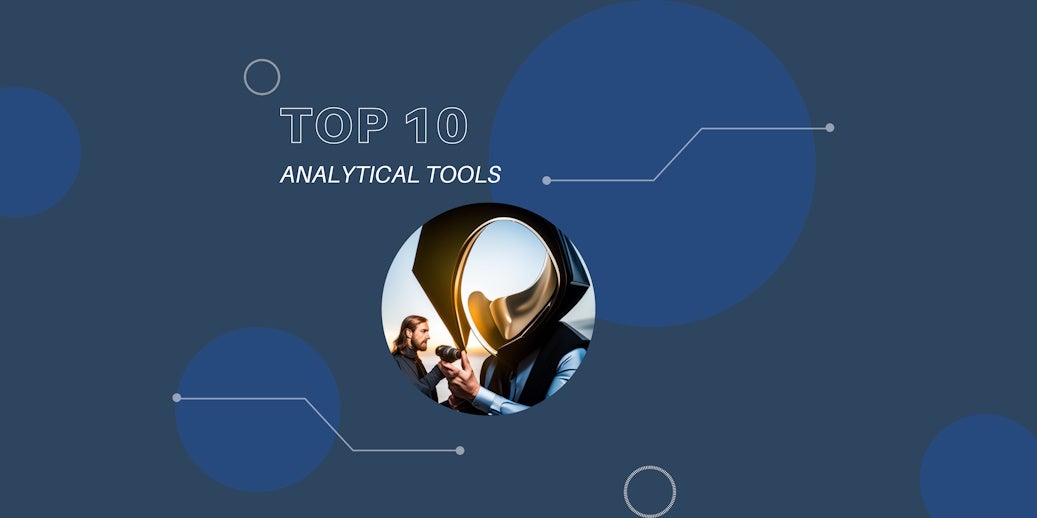The Ultimate Guide to Web Analytics: Top 10 Useful Tools for 2023
In today's digital landscape, web analytics has become an essential part of any successful online business. The ability to gather, analyze, and interpret data plays a crucial role in making informed decisions and optimizing the performance of websites. With the rapid advancements in technology, several tools have emerged to help businesses effectively monitor their web analytics. In this article, we will explore the top 10 useful tools for web analytics in 2023, providing you with valuable insights to enhance your online presence and drive meaningful results.
1. Google Analytics:
Google Analytics remains the most popular and widely used web analytics tool. It offers a comprehensive range of features and capabilities to track and analyze website traffic, user behavior, conversions, and more. With its powerful reporting and visualization tools, Google Analytics provides deep insights into your website's performance, allowing you to make data-driven decisions to improve user experience and achieve business goals.
2. Adobe Analytics:
Adobe Analytics is another robust web analytics solution that enables businesses to measure, analyze, and optimize their digital marketing efforts. It offers real-time data tracking, advanced segmentation, and predictive analytics, empowering businesses to understand customer behavior across various channels and touchpoints. Adobe Analytics also integrates seamlessly with other Adobe marketing solutions, providing a unified view of your marketing ecosystem.
3. Matomo Analytics:
Matomo Analytics, formerly known as Piwik, is an open-source web analytics platform that gives you full control over your data. With Matomo, you can track website visits, page views, conversions, and more while maintaining data privacy and compliance. It offers customizable dashboards, A/B testing, and goal tracking features, making it a popular choice for businesses that value data ownership and security.
4. Hotjar:
Hotjar is a powerful tool that combines analytics and user feedback to provide a holistic understanding of user behavior. It offers heatmaps, session recordings, and conversion funnels, allowing you to visualize how users interact with your website. Hotjar's feedback tools, such as surveys and polls, enable you to gather qualitative data and gain insights into user preferences, pain points, and opportunities for improvement.
5. Crazy Egg:
Crazy Egg is a user-friendly web analytics tool that specializes in heatmaps and user behavior analysis. It helps you visualize where users click, scroll, and spend the most time on your website. Crazy Egg's reports and A/B testing features enable you to optimize your website's design, layout, and content to maximize conversions and improve user experience.
6. SEMrush:
SEMrush is a comprehensive digital marketing platform that includes powerful web analytics capabilities. It provides detailed traffic analytics, keyword research, competitor analysis, and backlink tracking. SEMrush's data-driven insights help you identify opportunities for organic search optimization, content creation, and PPC campaigns, enabling you to stay ahead of the competition.
7. Moz Pro:
Moz Pro offers a suite of SEO tools that include web analytics features to help businesses improve their search engine rankings. It provides valuable insights into website traffic, keyword rankings, and on-page optimization. Moz Pro's Site Crawl feature helps identify technical SEO issues, while its Link Explorer tool assists in analyzing backlink profiles and finding link-building opportunities.
8. Mixpanel:
Mixpanel is a powerful analytics platform designed for product analytics and user engagement tracking. It allows you to analyze user behavior in real-time, create funnels, and perform cohort analysis. Mixpanel's advanced segmentation and automation features enable businesses to understand user retention, optimize user onboarding, and deliver personalized experiences.
9. Kissmetrics:
Kissmetrics focuses on customer-centric web
analytics, providing insights into user behavior throughout the customer journey. It offers advanced event tracking, conversion attribution, and funnel analysis to help businesses optimize their marketing strategies. Kissmetrics also integrates with various marketing platforms, enabling you to create targeted campaigns and measure their effectiveness.
10. Chartbeat:
Chartbeat is a real-time analytics tool that provides instant insights into website performance. It offers data on active visitors, engagement metrics, and content performance. Chartbeat's dashboard allows you to monitor user behavior in real-time, identify popular content, and optimize your website for maximum engagement and revenue generation.
Conclusion:
Effective web analytics tools are indispensable for businesses seeking to make data-driven decisions and optimize their online presence. The top 10 tools mentioned in this article—Google Analytics, Adobe Analytics, Matomo Analytics, Hotjar, Crazy Egg, SEMrush, Moz Pro, Mixpanel, Kissmetrics, and Chartbeat—offer a wide range of features to suit different business needs. Whether you require comprehensive traffic analysis, user behavior tracking, conversion optimization, or customer-centric insights, these tools empower you to gather valuable data and gain actionable insights. By leveraging these tools in 2023, businesses can enhance their web analytics capabilities and stay ahead in the competitive digital landscape. Remember, selecting the right tool for your specific requirements is crucial to unlock the full potential of web analytics and drive meaningful results for your online business.


